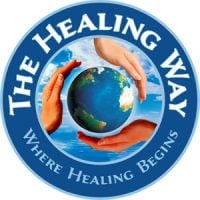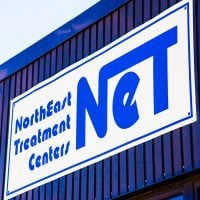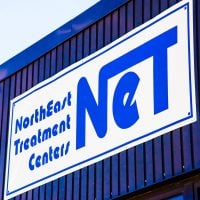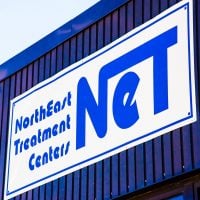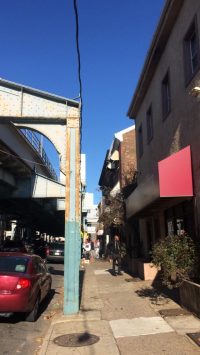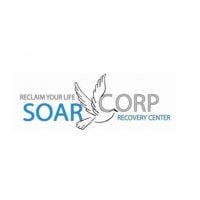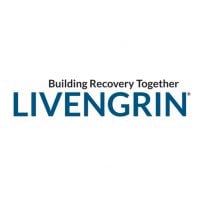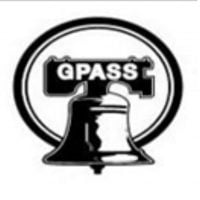CDA of Greater Northeast
Drug Rehab Center in Philadelphia, Pennsylvania
CDA of Greater Northeast in Pennsylvania provides various levels of care, aftercare support, and a dedicated staff to assist individuals in their addiction recovery journey.
Multiple patients have reported CDA of Greater Northeast as permanently closed.
Research other rehabs in Philadelphia, Pennsylvania, or get help finding an open facility.
About CDA of Greater Northeast in Pennsylvania
CDA of Greater Northeast is an alcoholism, dual diagnosis, opioid addiction, and drug addiction treatment facility located in Philadelphia, Pennsylvania. This facility offers services to individuals who are seeking recovery from alcoholism, dual diagnosis, opioid addiction, and drug addiction. They provide a range of treatment options and support for those looking to get sober.
CDA of Greater Northeast offers various services and treatment methods for individuals struggling with addiction and substance abuse. They provide aftercare support to ensure individuals have ongoing support and guidance once they complete their initial treatment. The facility also offers drug rehab services, with a focus on outpatient levels of care. Through their outpatient programs, individuals can receive comprehensive treatment that may include counseling, therapy, medication-assisted treatment, and other evidence-based practices tailored to the individual's needs. Overall, CDA of Greater Northeast aims to provide comprehensive care and support for individuals on their journey to recovery.
Genders
Ages
Modality
Additional
Conditions and Issues Treated
Opioid addiction has become a significant health problem in the United States. When a person’s life becomes unmanageable because of an opioid addiction, treatment can help them get sober. Treatment includes medical care and counseling.
“With so many people struggling with opioid addiction, we need more care and attention for those who want to quit. Opioid addicts often take opioids when they experience a painful injury – that’s how the cycle starts! When someone begins taking their medication differently than prescribed or takes an excessive amount of drugs, it means they’re hooked on drugs and in danger of overdosing.
The most successful way to beat this is through detoxing from these types treatments at CDA of Greater Northeast in . Most facilities start by using medical support during the process while providing counseling services; rehabilitation comes later on after treatment has been completed successfully.
Levels of Care Offered
This center offers a variety of custom treatment tailored to individual recovery. Currently available are Aftercare Support, Drug Rehab, Outpatient, with additional therapies available as listed below.
Outpatient programs at CDA of Greater Northeast, the Philadelphia resident can live with their family while continuing with their job or studies. Treatment includes educating the patient on drug abuse, medications, and counseling sessions at the individual or group level. Outpatient treatment plans cover diagnosis, detoxification, management, and counseling. They are a popular option for those who have graduated from inpatient facilities.
Without aftercare support, addicts can easily relapse back into addiction. It is crucial to integrate the addict back into society. Aftercare support should take place after outpatient treatment has ended.
There are a few different types of aftercare support that patients can seek after completing an inpatient treatment program:
- 12 Step Self-help groups (AA, NA)
- Therapeutic communities,
- Long-term, structured sober living arrangements
- Halfway houses (residential treatment centers)
Many different support groups exist for addicts to seek help after treatment. Some are more effective than others, depending on the person’s addiction, background, and other factors.
Therapies & Programs
Individual therapy is a form of counseling where you meet with a trained professional one-on-one. Meeting with a therapist in this setting allows for a personal and trusting relationship to be built. This allows the patient to open up about sensitive or private issues they may not feel comfortable discussing in a group. Individual therapy helps identify the root causes of your addiction, which can help prevent relapse.
Couples therapy for drug addiction is a unique form of therapy that allows family members to work through the emotional issues of their loved one’s addiction together. Family members can support each other while learning how to cope with the addiction and encourage healthy changes. The two will work with a therapist to learn how the addiction affects themselves and the relationship.
Family therapy is often done alongside drug treatment to help addicts stay sober. The goal of family therapy for drug addiction is to create an environment where communication can happen without judgment, hostility, or blame. The therapist will sit with the family so they can learn how to communicate differently and provide new tools for dealing with emotions so that people don’t want to drink or do drugs. It’s important for families to focus on relapse prevention plans during treatment so that if the addict feels like they want to use again, they’ll know what steps they need to take together to prevent it from happening again in the future.
Group therapy sessions are another common addiction recovery service. These group sessions typically involve six to 12 addicts who meet regularly with a trained professional for support and guidance.
During these sessions, the group shares their experiences with one another and provides feedback that can help each member avoid relapse or overcome specific obstacles they are facing in their recovery process. With this type of support and guidance, addicts can feel like they are part of a community that understands their struggles and will help them get through the hard times.
Additional Details
Specifics, location, and helpful extra information.
Philadelphia, Pennsylvania 19136 Phone Number(215) 708-1020 Meta DetailsUpdated November 25, 2023
Staff Verified
CDA of Greater Northeast Patient Reviews
There are no reviews yet. Be the first one to write one.
Philadelphia, Pennsylvania Addiction Information
Pennsylvania ranks 14th in the nation for drug-related deaths. More than 10% of all deaths in Pennsylvania have been related to drugs and alcohol. 30% of Pennsylvania youth reportedly drink alcohol monthly, with more than 20,000 teenagers having an alcohol problem. The rate of opioid misuse in Pennsylvania is double the national average.
Drug addiction and abuse are a big problem in Philadelphia, Pennsylvania. According to recent statistics, about 73,000 people in Philadelphia struggle with drug addiction. This means that about 7.5% of the population is addicted to drugs. Philadelphia also has one of the highest overdose rates in the country, with about four deaths per 100,000 people. It is important to choose a program that fits the individual's needs and addiction severity.
Treatment in Nearby Cities
- Sunbury, PA (107.3 mi.)
- Easton, PA (45.6 mi.)
- Greenville, PA (294.6 mi.)
- Pittston, PA (96.7 mi.)
- Bolivar, PA (217.2 mi.)
Centers near CDA of Greater Northeast
The facility name, logo and brand are the property and registered trademarks of CDA of Greater Northeast, and are being used for identification and informational purposes only. Use of these names, logos and brands shall not imply endorsement. RehabNow.org is not affiliated with or sponsored by CDA of Greater Northeast.

